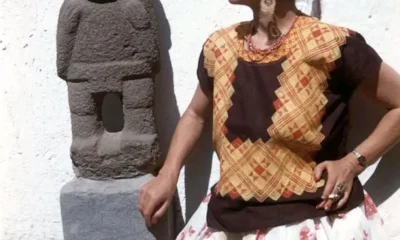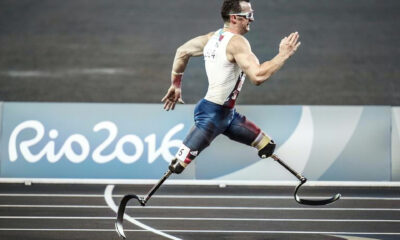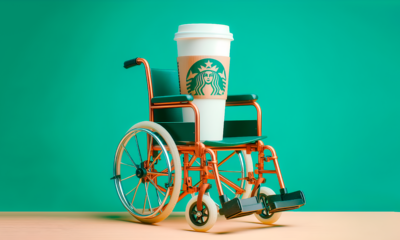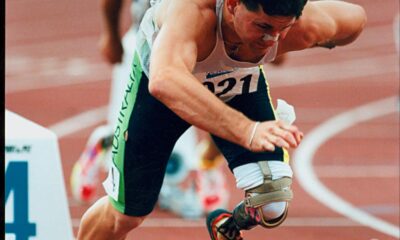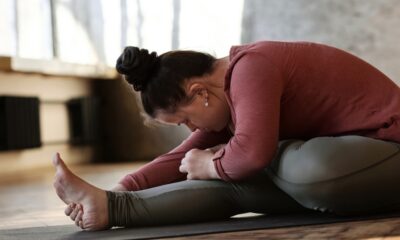Entertainment
Mel Wardle Woodend: Using Experience and Disability to Help Others

Some of the poetry written by Mel Wardle Woodend is inspired by her OCD, while others are inspired by both her and her husband’s dyslexia and her experience with Meniere’s disease. She says, “I feel privileged to be able to do this because people have told me that some of my mental health poetry has helped them to feel less alone in what they too, are experiencing.”
So, let’s take a look at her work and career.
Becoming a Poet Laurette
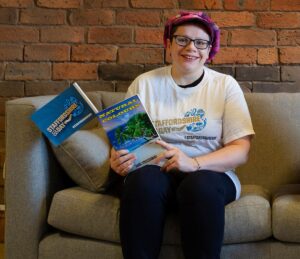
© Express and Star
Mel has made some great achievements with her poetry. For many poets, becoming a Poet Laurette is a far-off dream that only happens to other people. For Mel, it became a reality in 2019, when she was awarded the role of Staffordshire Poet Laurette for her contribution to raising the profile (and popularity) of poetry in and around Staffordshire. While most of us were facing our own different challenges in 2020, during the pandemic, she had the extra challenge of adapting her work to online platforms.
This included the co-run event with Jon Watkiss, WORD Staffordshire. Running this online had the added benefit of helping to connect people who would otherwise be emotionally isolated during the strict periods of lockdown.
Dyslexia
Mel also creates dyslexic-friendly books. The motivation behind setting up her publishing company, Dream Well Writing, was her husband’s struggles with dyslexia, alongside her previous experience of working as a support assistant. Mel worked with young people who faced barriers to literary development. This prompted her to follow the examples of publishers, such as Barrington Stoke who format their books in a way which makes reading more accessible for people with dyslexia.
Hearing Loss

© Pixabay
However, Mel faced further challenges when waking one day to realise she couldn’t hear properly in one ear. This was later diagnosed as Meniere’s Disease and spread to her other ear. She describes the experience as frightening, leaving her too concerned to walk down the street on her own, due to not hearing approaching cars or footsteps of people which she was always aware of until that point. This new disability affected her poetry as a career, because of the predominantly listening aspect. One example of this is being unable to hear responses from children during assemblies or participants during workshops.
Although hearing aids help, Mel describes some of the challenges involved in adapting to them.
“I find the things I used to enjoy as a routine part of life – going out to a café with friends, hosting poetry events, running workshops, and even watching TV – can be very exhausting as my hearing aids amplify all the sounds they pick up and send them straight to my brain! Then the brain has to work really hard to try to decide which of the sounds it actually needs to process (such as the person I am speaking to and not just all of the background noises). I know I will never hear words properly in my left ear again as those sounds have been permanently lost – but the hearing aid helps my right ear a lot with clarity and I have been learning lipreading, which is starting to help me a little too.”
Further education
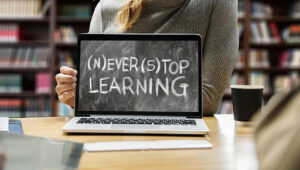
© Pixabay
Before her hearing loss, Mel was looking into a doctoral research programme, which she put on hold in the hope her hearing would recover. After learning it wouldn’t, she made the decision to apply and is now taking her PhD at Aston University. The support from the university has been a great help, but it wouldn’t be possible without her determination and ability to adapt to some of the significant challenges thrown at her.
She shares an encouraging message to anyone facing similar or different challenges in life.
“I think, successfully applying and gaining my place and starting a new ‘journey’ as a deaf student has really been an achievement to be proud of. The one thing I have learnt is that you cannot let things hold you back – it is fine to have dark and difficult days (and completely normal when going through something quite life-changing) – but important to not let a disability take away the things that are important to you.”
Culture
Five Most Celebrated disabled Artists across the World
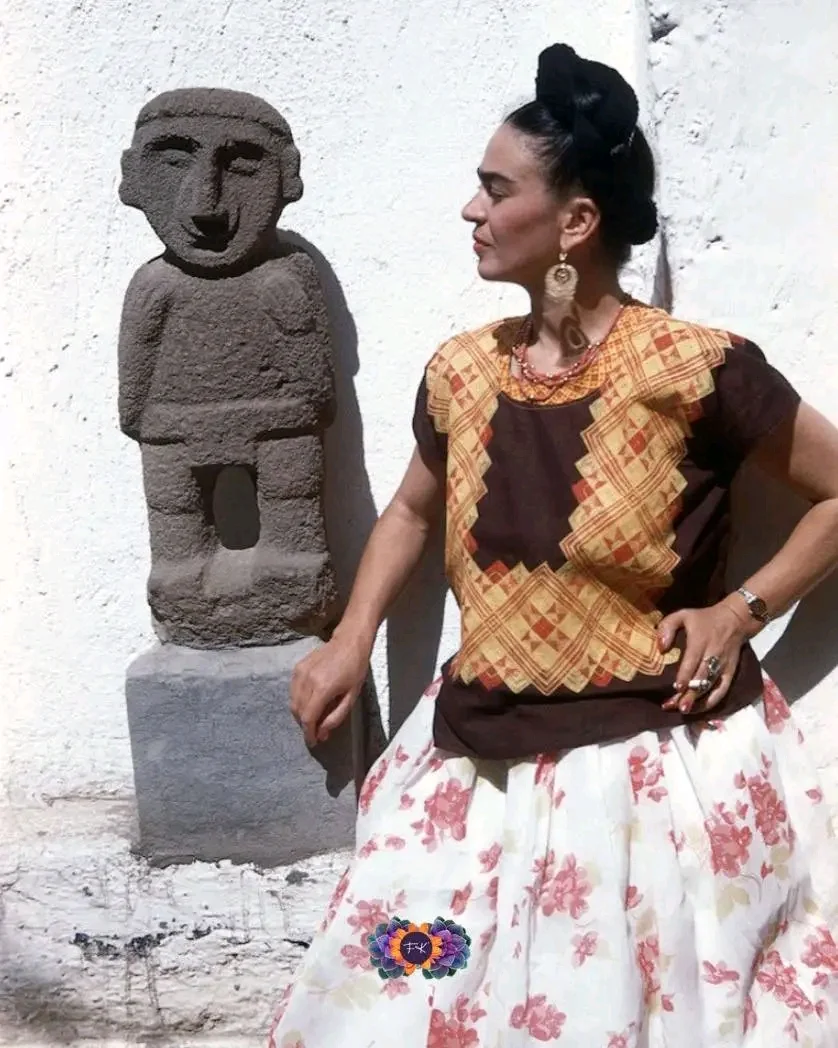
The world often celebrates success, but true inspiration often lies in overcoming adversity. These five individuals, all prominent figures in their respective fields, have defied limitations imposed by disability, proving that the human spirit can soar regardless of any challenges they confront in life.
Their stories not only amplify the achievements of disabled artists, but also highlight the unique talents of disabled artists and their profound impact across the human race.
Sudha Chandran
Although a devastating car accident at 16 claimed Sudha’s leg, yet she refused to let it define her. With unwavering determination, Sudha relearned to dance, this time with a prosthetic limb. Her portrayal of her own life in the film “Mayuri” earned her national recognition, and her career blossomed. Today, Sudha is a celebrated actress, dancer, and reality TV star, inspiring millions with her grace and perseverance. Her journey, a part of the school curriculum in India, serves as a beacon of hope, not just in her home country, but across the globe, solidifying her place among famous disabled artists worldwide.
Aaron Fotheringham
Forget conventional skate parks. Aaron Fotheringham, better known as “Wheelz,” rewrites the rules on a specially designed wheelchair. Born with Spina Bifida, Aaron never let his disability clip his wings. From a young age, he embraced challenges, mastering walkers and crutches before conquering skate ramps at eight. Fearless and innovative, Aaron became a pioneer in Wheelchair Motocross (WCMX), pushing the boundaries of the sport with groundbreaking tricks like backflips and one-wheeled spins. His dedication has earned him not just recognition, but a place among the most influential figures in extreme sports.
Daniel Radcliffe
While the world met him as the bespectacled wizard, Harry Potter, Daniel Radcliffe’s journey is more complex. Diagnosed with dyspraxia, a learning disability affecting coordination, Daniel faced challenges in everyday tasks. Yet, acting proved to be his saving grace. Encouraged by his mother at the age of nine, he landed the iconic role that propelled him to global stardom.
Despite the demands of fame, Daniel excelled in his studies and transitioned seamlessly into a diverse acting career, tackling challenging roles on stage and screen. Openly discussing his dyspraxia, he raises awareness for neurological conditions and inspires others to embrace their differences. Now a father, Daniel thrives on a new chapter, demonstrating that success extends far beyond the world of make-believe.
Nick Vujicic
Nick Vujicic’s story is one of overcoming seemingly insurmountable odds. Born with tetra-amelia syndrome, an extremely rare condition that results in the absence of limbs, Nick endured a childhood filled with hardship and isolation. However, his spirit remained unbroken. Nick discovered his passion for motivational speaking, sharing his story of resilience and self-acceptance with audiences worldwide. As the founder of “Life Without Limbs,” he empowers people with disabilities and inspires them to lead fulfilling lives.
Frida Kahlo
Frida Kahlo, the iconic Mexican painter, battled health issues throughout her life. Diagnosed with Polio as a child left her with lasting physical limitations, and a horrific bus accident in her youth caused severe injuries, including a broken spine. It was during her recovery that Frida turned to art, channeling her pain and experiences into self-portraits that became her signature style.
However, Frida’s work explored themes of identity, suffering, and the female experience. Though she died young, her artwork continues to resonate with audiences today, securing her place among celebrated disabled artists. Beyond her artistic genius, Frida’s defiance of societal norms has made her a celebrated figure within the LGBT community.
These five individuals stand as powerful examples of human potential. They have redefined success, proving that disability is not a barrier to achievement. Their stories inspire us to embrace challenges, celebrate differences, and pursue our dreams with unwavering determination.
These inspiring stories highlight the need for greater global recognition of disabled artists, breaking down barriers and ensuring a more inclusive art industry where disability in the art industry is not a hindrance, but a source of immense creative power.
By Yahuza Bawage
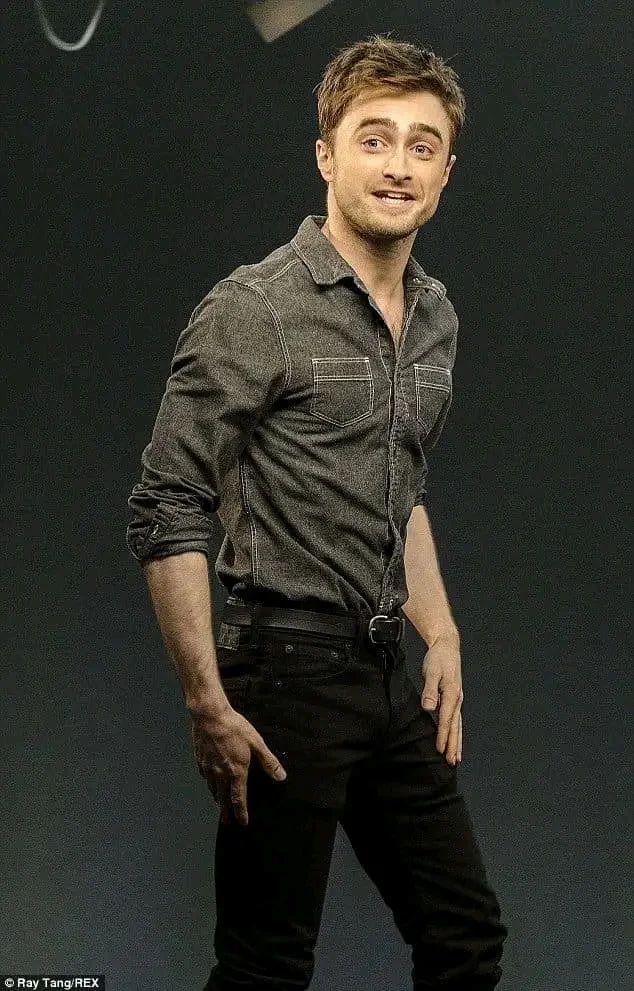
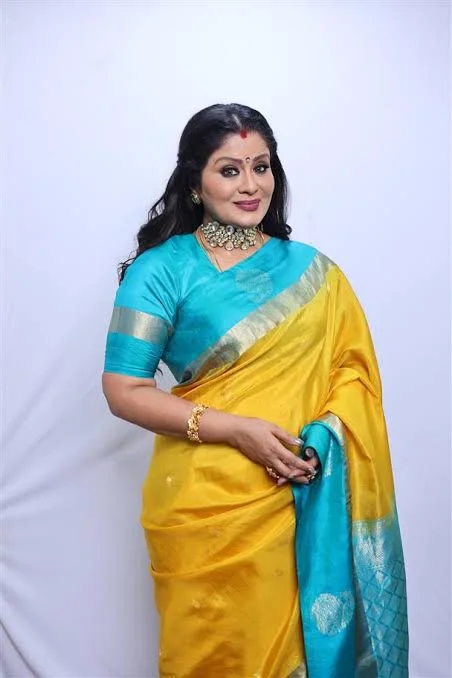
Culture
Neurodiverse Filmmakers Shone in New York Film Festivals
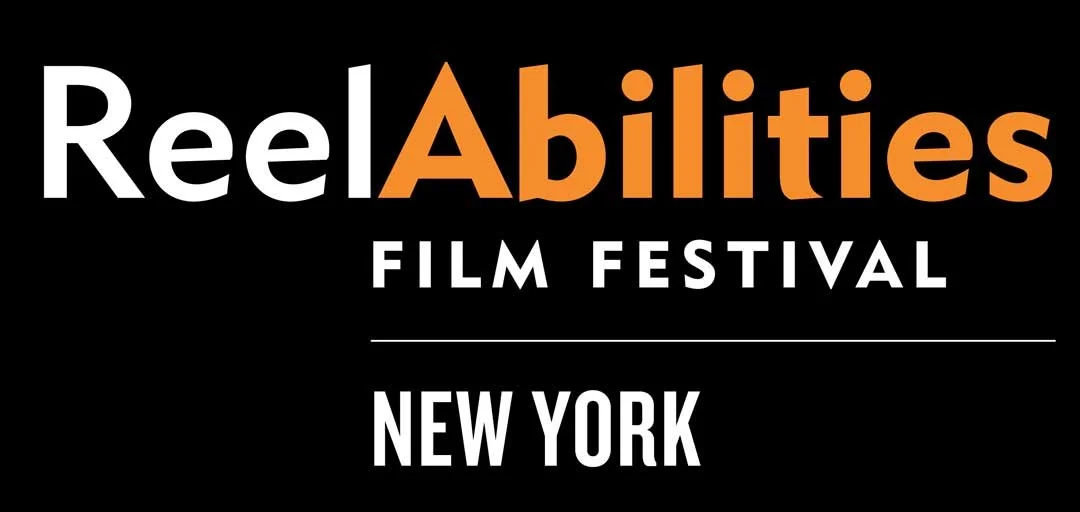
Two prestigious New York-based film festivals, the Marvels of Media and ReelAbilities, recently showcased the transformative power of cinema through narratives crafted by and about neurodiverse individuals. These events not only highlighted diverse films but also marked a significant shift in the film industry’s approach to neurodiversity.
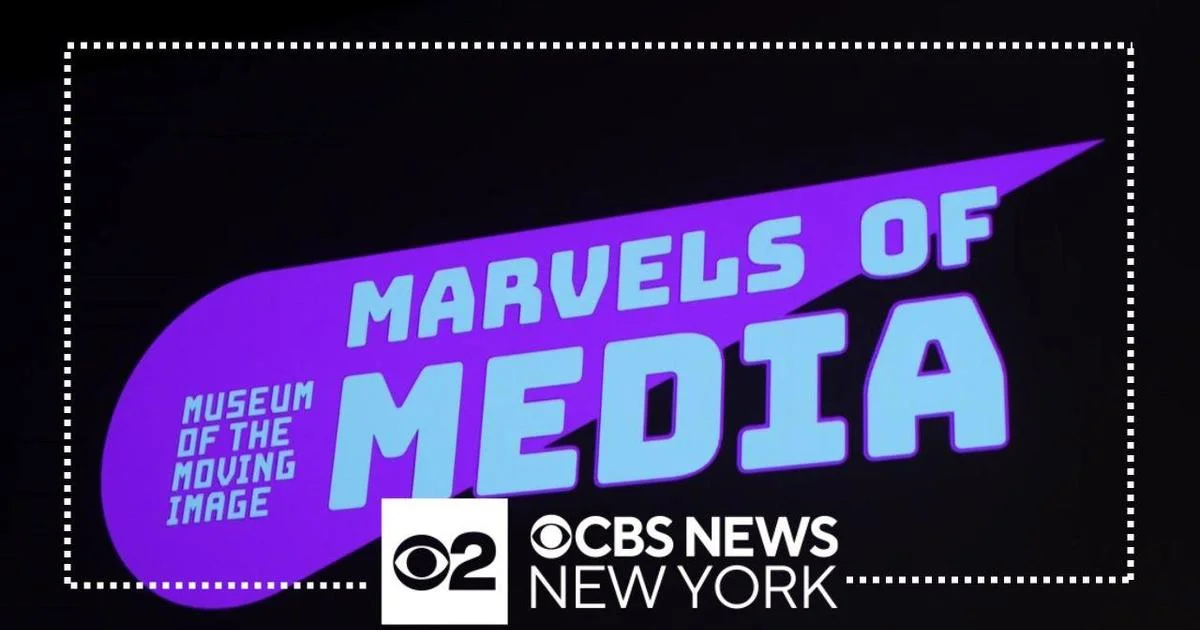
Marvels of Media Festival: Celebrating Autistic Mediamakers The Marvels of Media Festival, held at the Museum of the Moving Image (MoMI) in Queens, became a pioneering platform for mediamakers with autism. Screenwriter Tony Spiridakis, initially unfamiliar with the festival, became an avid supporter after penning his film Ezra, which explores parenting a child on the spectrum. MoMI’s festival offered an unfiltered glimpse into the unique perspectives of autistic creators, challenging the industry to embrace and learn from their authenticity.
ReelAbilities Film Festival: A Stage for Diverse Narratives Simultaneously, the ReelAbilities Film Festival, which ran in early April, featured the New York premiere of Ezra on its opening night. This festival has been a cornerstone for disabled filmmakers and narratives, spotlighting how diverse storytelling can enrich cinema. ReelAbilities co-founder Isaac Zablocki highlighted that films focusing on disabilities are not only marketable because they’re different but also because they bring essential perspectives to the forefront of cinematic discourse.
Impact and Insights from Industry Leaders Both festivals demonstrated their commitment to changing narratives around neurodivergence and disability. Dani Bowman, CEO of Danimation Entertainment and a star in Netflix’s Love on the Spectrum, shared her experiences at MoMI’s “Unique Romances” program. Her journey in animation and television has been pivotal in challenging stereotypes and promoting inclusivity.
Cultural Shifts and Community Building The festivals also fostered community and collaboration among filmmakers and artists. MoMI’s executive director Aziz Isham expressed that the festival was more than just a showcase of films; it was a celebration and a gathering place for neurodiverse makers and their allies to share ideas and build networks.
Looking Forward The Marvels of Media and ReelAbilities film festivals have already made significant strides in elevating neurodiverse voices within the mainstream media landscape. Their past editions have not only featured compelling films but also facilitated discussions and workshops that empowered participants and viewers alike. These festivals are pivotal in shaping a more inclusive and empathetic film industry, promising a future where diverse perspectives are not just recognized but are integral to storytelling.
New York Film Festivals Celebrate Neurodiverse Filmmakers, Showcasing Diverse Narratives and Empowering Voices
The impact of the Marvels of Media and ReelAbilities film festivals extends beyond their screenings. They are pivotal in challenging the norms of Hollywood and the broader film industry, advocating for a cinematic world where neurodiversity is not an exception but a vital part of the narrative landscape. As these festivals continue to inspire and innovate, they ensure that the voices of neurodiverse filmmakers and characters resonate louder and reach farther than ever before.
Entertainment
Parents Aid Intellectually Disabled in College Degrees
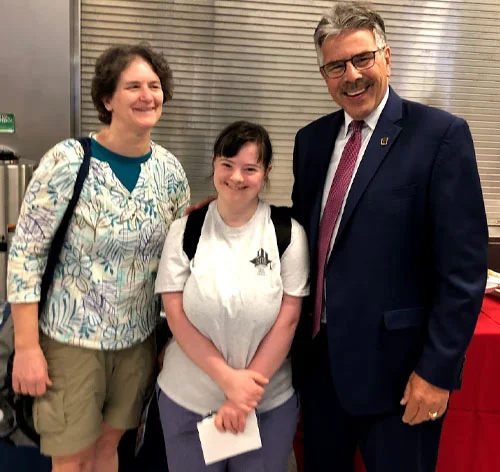
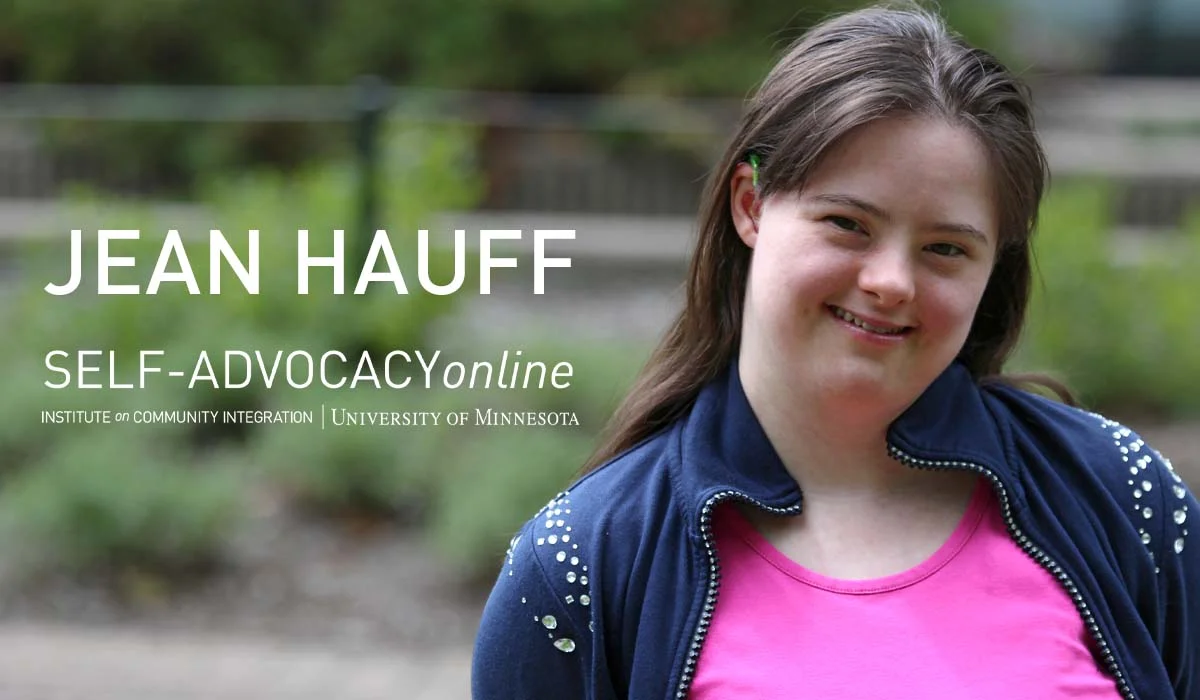
In her home state of Minnesota, the dream of college seemed out of reach for Jean Hauff, a young woman with Down syndrome. She wanted to pursue a career in mass media, but no Minnesota school offered the intellectual disabilities college programs or specific support services she craved.
Jean faced this troubling reality because Minnesota lacked a system that embraced students with disabilities (ID) within mainstream higher education. Existing programs were limited, offering neither the desired fields of study nor the promise of a fulfilling college experience. This situation caused worry for Mary Hauff, Jean’s mother, who since Jean’s birth has been a champion of inclusive education.
This frustration fueled the creation of the Minnesota Inclusive Higher Education Consortium in 2019. This powerful coalition, composed of parents and disabilities advocates, embarked on a mission to transform the higher education landscape for students like Jean.
The efforts of this coalition made a significant turning point in 2023 as the Minnesota Legislature began to recognize the potential and the right of intellectually disabled students. A significant $2 million was allocated for a period of two years to promote inclusive higher education in the region. This brought smiles to parents whose children struggle with ID, highlighting the importance of parental aid degrees.
The vision is clear: students with ID deserve the same opportunities as their peers – the same range of study options, enriching campus experiences, and the chance to earn meaningful credentials. Experts believe that a substantial portion of the allocated funds will directly empower colleges to develop innovative methods to attract and support students with ID, providing much-needed college degrees assistance.
Another crucial aspect of this initiative is the creation of a technical assistance center, funded with $500,000 and housed at the University of Minnesota. This center serves as a central hub for expertise, offering best practices on providing inclusive postsecondary education. Students with ID themselves have a significant voice in shaping this center’s direction, with half the members of its advisory committee coming from this very community.
A past attempt at attending a technical college left Dupree Edwards, a Minnesotan with ID, feeling unsupported and ultimately led him to abandon his pursuit. However, Edwards thrives when given accessible learning materials and a structured environment that caters to his learning pace. The news of the legislation was met with immense joy by Edwards, who aspires to pursue formal studies in performing arts – a dream that now seems achievable thanks to increased disabilities support college.
The Higher Education Opportunity Act of 2008 also laid the groundwork for increased college access for students with ID nationwide. Today, Minnesota joins states like Kentucky, which established a similar technical assistance center in 2020, witnessing a subsequent doubling of college opportunities and disabilities within the state.
Also, institutions can apply for grants of up to $200,000 per year for four years, empowering them to develop or strengthen their capacity to support students with ID. This highlights the importance of inclusive education.
For Jean Hauff, whose college journey took her outside Minnesota due to a lack of suitable options, this initiative holds immense significance. Despite a positive experience at Duquesne University’s pilot program for students with ID, she eventually had to transfer due to program changes.
Now, with this renewed hope, Jean aspires to pursue her education and career goals within her home state.
While this groundbreaking investment serves as a beacon of hope for students with ID in Minnesota, many students like Jean feel that with the help of parents and disabilities advocates, it’s possible to go to college and become whatever they dreamed to be.
Written by Yahuza Bawage

